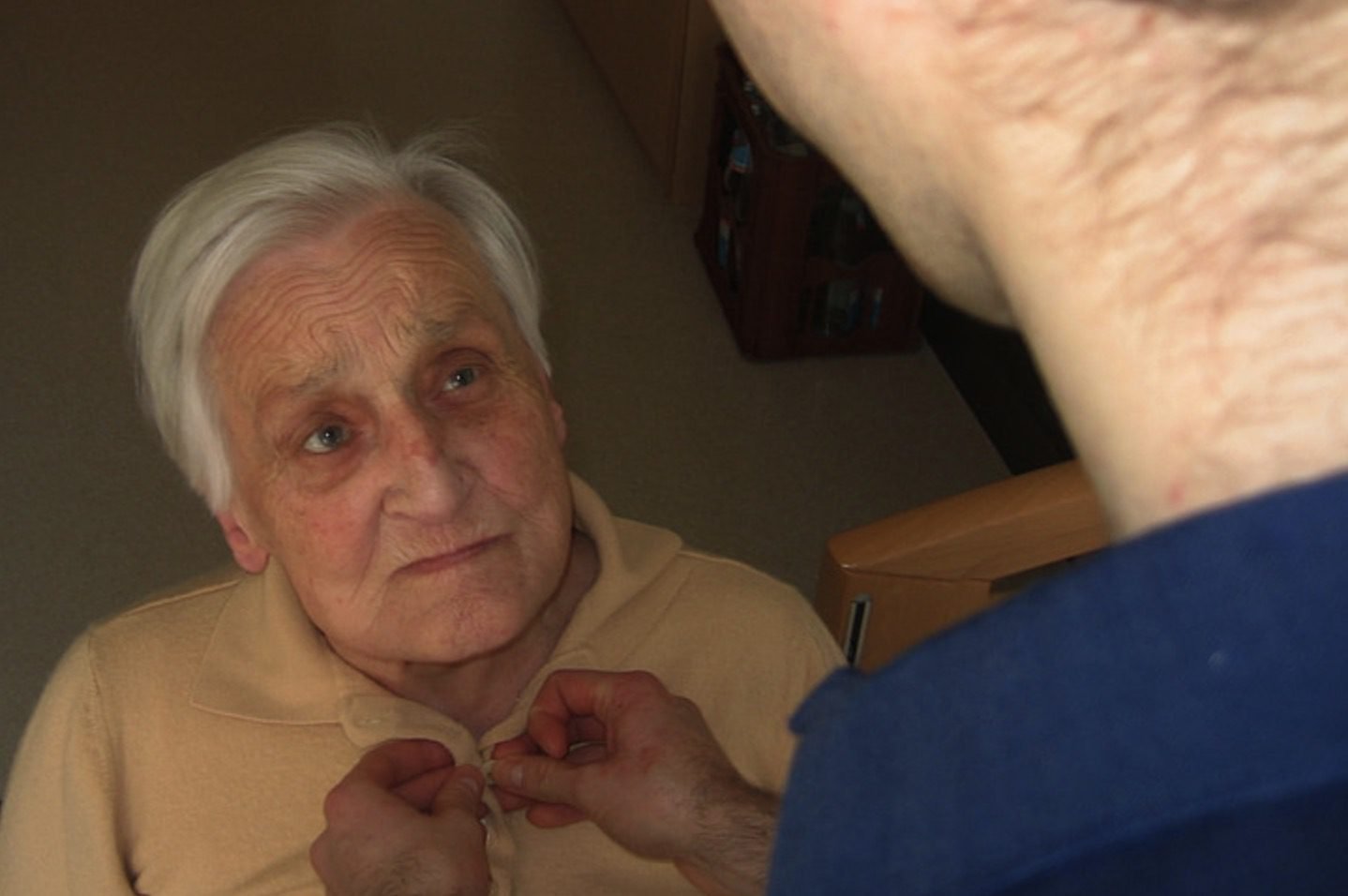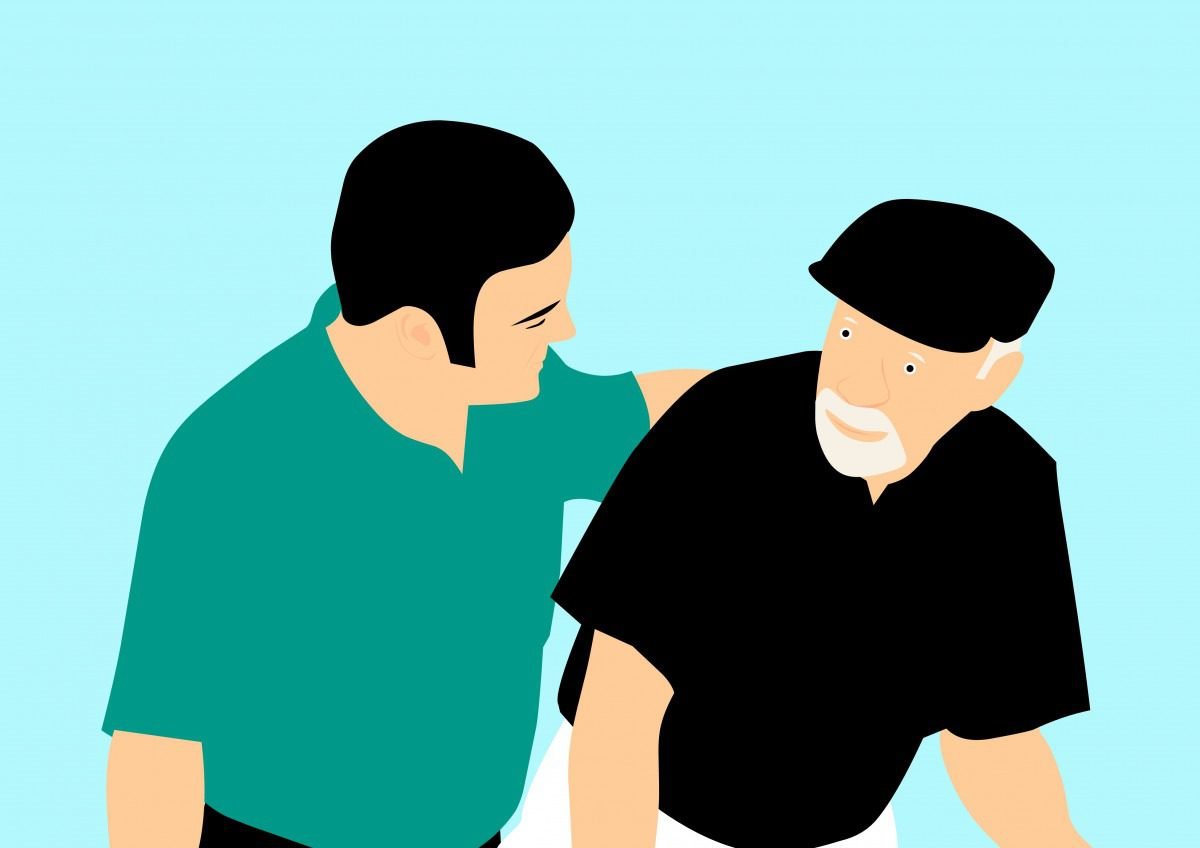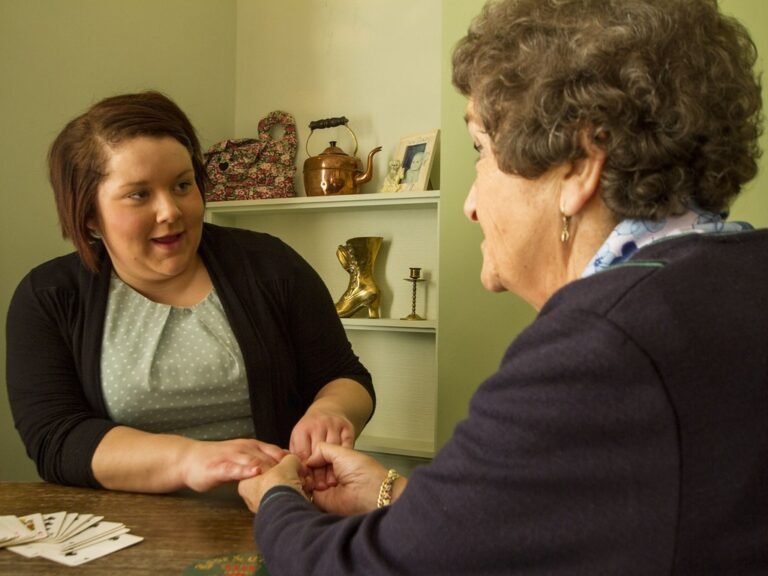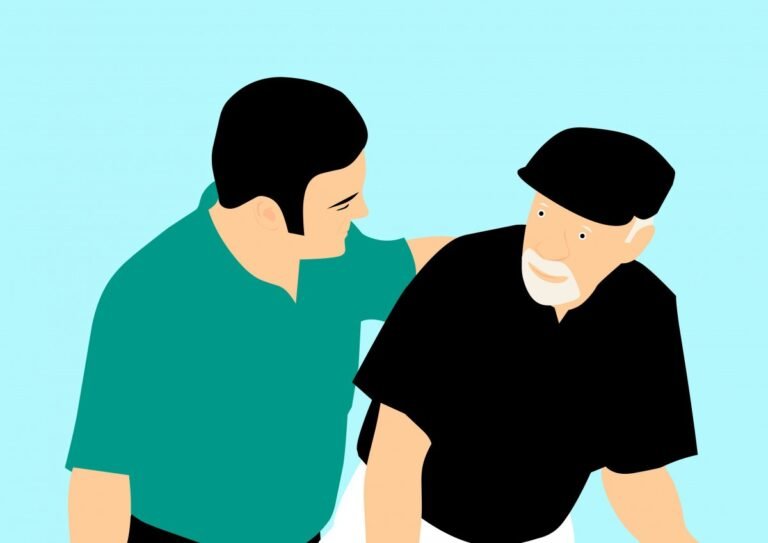Why Do Dementia Patients Stare At You? [Behaviour Explained]
Being a caretaker for dementia patients is a challenging task to undertake. As the disorder progresses, an alteration in their behavior is observed which might seem peculiar to some.
The late stages are difficult for the patients as well as for their families and caregivers since that’s when the cognitive fluctuation occurs.
However, It’s crucial to stay considerate of patients’ feelings and act calmly to not hurt their sentiments. This article aims to explore some of the reasons dementia patients stare and how should one manage staring in certain situations.
If you’re looking for a dementia caregiver in Florida, check us out by clicking here!
Does Lack of Recognition Result in Staring?
Yes, lack of recognition could be one of the reasons dementia patients stare at you. Patients with dementia may struggle with recognizing people, at times it might be their loved ones. They might stare at people trying to figure out who they are, how they are related to them and what’s the reason for their visit.
Dementia patients are often on the lookout for familiarity or a sense of belonging. Staring might be their attempt to make an unfamiliar face seem familiar, hoping it might trigger a memory or a sense of recognition.
Related Read: Living With Someone With Dementia | Challenges & Dangers
Managing Staring Due to Lack of Recognition
Make sure to introduce yourself to the patient, ensure that they can see or hear you properly, help them understand the situation in a better way, and provide them with peace of mind. If they fail to recognize you, try not to force a conversation as it might startle the patient.


Does Communication Difficulties Influence Staring Behavior?
When dementia patients find it hard to convey their needs through words, they see non-verbal communication as the easier choice. Patients may rely on staring or other non-verbal ways of communication to convey how they feel.
Due to their cognitive impairment, they may struggle with finding the right words to communicate their thoughts. Despite their inability to verbally communicate, dementia patients still have emotions, feelings, and thoughts that should be taken into consideration by the caretakers.
Managing Staring Due to Communication Difficulties
Family and caregivers need to pay close attention to what the patients might be trying to communicate. They can respond accordingly by addressing those needs or finding a solution to what might be bothering the patient.
Does Sensory Overload Induce Staring?
Dementia can elevate an individual’s sensitivity to external stimuli. The patients may feel more irritable about environmental hindrances as the disorder progresses. Due to cognitive malfunctioning, a patient with dementia might struggle with detecting external stimuli and processing them, ultimately upsetting the patient.
Sensory overload can potentially distress a dementia patient and hence staring might be their way to cope with the overwhelming experience. Under the presence of multiple stimuli, it might be hard for a dementia patient to focus on a single element. Thus again, staring might be their response to such a situation.
Managing Staring Due to Sensory Overload
To avoid putting dementia patients under a lot of stress by exposing them to sensory overload, caregivers should provide the patient with a sensory-friendly environment. Minimizing noise, using soft lights, and a comfortable space for them as per their liking could provide patients with moments of rest and peace.


Do Hallucinations or Delusions Induce Staring?
As the disorder progresses, dementia can lead to hallucinations and sensory distortions and the patient might perceive something to be real when it doesn’t exist. With these hallucinations, staring behavior is observed. For instance, a patient may be staring at something or someone only they can see.
Similarly, dementia can also lead to delusions. Delusions bring about staring behavior in patients with dementia. Patients may hold delusional beliefs that make them stare at something or someone. For instance, a patient may believe that someone in the room is a threat ultimately making them stare at that person.
Managing Staring Due to Hallucinations or Delusions
Since the above two aspects are very real to patients with dementia, it is crucial to not contradict their beliefs. Instead, reassure your loved ones, and try distracting them. If the situation worsens, consult a doctor.
Is Hyperfocusing Another Reason for Staring?
Yes, dementia patients tend to fixate on a particular person or object. The hyper-focusing on a single aspect, especially in dementia patients can last for an extended period of time resulting in staring.
With cognitive challenges, it is tough for patients with dementia to shift their thought processes from one thing to another. As a result, when they get fixated on something, it gets quite challenging for them to redirect their attention to a different object or person. Another reason for their staring could be their interest or level of comfort in that specific object or person.
Managing Staring Due to Hyperfocusing
Caregivers can assess the safety of the fixation, making sure it doesn’t pose a threat to the patient or others. Redirect the patient’s attention to something productive such as painting, to avoid extended periods of hyper-focusing.
Emotional Reasons Behind Staring
Staring can be influenced by various emotional factors. Since patients with dementia find it hard to communicate their feelings, caretakers can look for the following emotions in the patients and help them accordingly.
- Loneliness: Patients may feel isolated, they may stare at others seeking companionship or understanding with someone.
- Discomfort: Patients may try to communicate their discomforts such as pain, hunger, or the need to use the restroom by staring at others.
- Agitation: Some patients may express their anger by staring.
- Anxiety or Fear: Patients may be experiencing anxiety or fear under certain circumstances. Staring might be their coping mechanism or a way to express their uneasiness
- Sadness: Dementia can lead to mood changes and staring might be a reflection of their emotional state.


Why do Dementia Patients Stare into Spaces?
Being a disorder of brain malfunctioning, dementia hinders the ability to process information or generate new ideas. The staring behavior of patients into spaces can be linked to both cognitive and emotional changes associated with the condition.
- Disorientation: Dementia brings about confusion. A patient might be staring into space trying to make sense of his surroundings.
- They may be Bored: With the inability to process thoughts, a patient might zone out and stare into space.
- Memory Impairment: With memory deficits, patients might stare into space trying to recall recent events or people. They might be trying to remember something and are lost in their own thoughts
- Thought Processing: Thought processing might be their attempt to process information and make decisions. They may stare while they are trying to react to their environment.
- Emotional Expression: A dementia patient might be experiencing a certain emotion. Their vacant gaze might be a way to tell what emotion they are encountering.
Managing Staring in Dementia Patients
Certain strategies if performed effectively, can provide comfort, reduce distress, and ensure the well-being of dementia patients.
- Provide Reassurance: Speak to patients in a calm and gentle tone, reassure them, and validate their feelings. Make sure they feel safe and understood.
- Provide a Calm Environment: Build a calm environment for dementia patients, and keep their vulnerability to sensory overload into consideration while creating an environment. Reduce noise and other potential stressors to prevent distressing conditions in patients.
- Assess Underlying Causes: Identify the reason behind the staring behavior. Choose the best intervention accordingly.
- Engage in Productive Activities: Assist the patients in engaging in productive activities. Such activities can also play a role in offering distractions.
- Healthy Non-Verbal Communication: Communicate non-verbally with dementia patients in a healthy manner. Smile often or provide physical support.
- Medication: If non-medical ways are of no use. Consult a doctor and let a healthcare professional prescribe medication to manage symptoms.
Read Next: How To Talk To Someone With Dementia? The Do & Don’ts
Conclusion
Dementia patients staring at people may have deep reasons behind it. Their brains are struggling to communicate, remember, and make sense of their surroundings. It’s important to find the reasons behind their behaviors that we may just see as strange conduct. Staring can be their way of finding comfort or conveying emotions. Caregivers can provide these patients with a calm, peaceful, and familiar environment so patients can grow under love, empathy, and care.
FAQs
Is it common for dementia patients to not recognize their loved ones?
Yes, it is relatively common for dementia patients to forget their loved ones. It is significant for family and caregivers to remain patient and understanding when this occurs.
Is there a way to redirect a dementia patient's attention away from staring?
Offering a distraction, gentle physical activity, or validation are some subtle ways of redirecting a patient's attention away from staring
What should I do when a family member with dementia stares at me?
Offer reassurance and validation, remain calm, assess the situation for potential triggers, and provide distractions when needed.
Should we avoid something when someone with dementia is staring at us?
Try not to give out negative reactions, avoid criticizing or challenging behavior as it could startle the patient.
Are there any specific environmental triggers for people with dementia?
Certain environmental conditions such as excessive noise, bright lights, clutter, crowded areas, unfamiliar surroundings, and unpredictable changes can trigger dementia patients.






